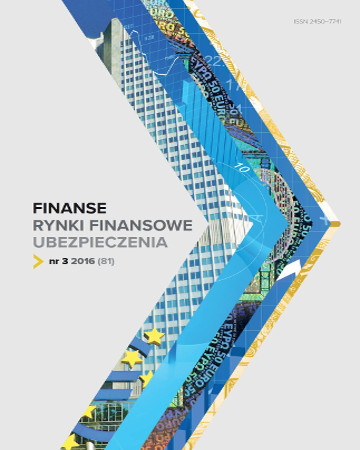
ISSN: 2450-7741
eISSN: 2300-4460
OAI
DOI: 10.18276/frfu.2017.90-07


Issue archive /
6/2017 (90)
Wiedza jako determinant zarządzania zasobami rzeczowymi, ludzkimi, finansowymi współczesnych organizacji: ujęcie modelowe
(Knowledge management as a determinant in financial, human and material resources of contemporary organization: model approach)
| Authors: |
Paweł
Staszak
Uniwersytet Szczeciński Miłosz Rutkowski Uniwersytet Szczeciński |
| Keywords: | knowledge management organization |
| Data publikacji całości: | 2017 |
| Page range: | 8 (95-102) |
Abstract
Purpose – the issue of knowledge management is becoming a more important considering today’s market trends. The aim of this article is to present the concept, basic definitions, trends in the area of knowledge management and to show that successful deployment of knowledge management is determined by many factors. As a key element should be indicated the specific features of the organization, which affect the ability to implement proper knowledge management system. In order to achieve the maximization of the effects in this area the company, without a doubt, should be active, self-improving, development-oriented and customers. In article has been presented the most popular models in this issue.
Methodology – the method includes analysis of literature and authors own observations in terms of current trends of organizations management.
Findings – the results includes creation current opinion in terms of knowledge importance in managing present-day organizations.
Originality/value – in the article has been presented current models in the context of knowledge management in modernly functioning organizations.
Download file
Article file
Bibliography
| 1. | Bukowitz, W.R., Willams, R.L. (2000). The Knowledge Management Fieldbook, Financial Time. London: Prentice Hall. |
| 2. | Davenport, T., Prusak, L. (1998). Working Knowledge. Boston: Harvard Business School Press. |
| 3. | Frappaolo, O. (2006). Knowledge Management A State of the Art. Guide, London: Kogan Page. |
| 4. | Glińska-Neweś, A. (2007). Kulturowe uwarunkowani zarządzania wiedzą w przedsiębiorstwie. Toruń: TNOiK. |
| 5. | Grudzewski, W.M., Hajduk, I.K. (2007). Zarządzanie wiedzą w organizacji. Warszawa: Difin. |
| 6. | Hedlund, G. (1994). A Model of Knowledge Management and the N – form Corporation. Strategic Management Journal, 15, 67–76. |
| 7. | Hirsch, P.M., Levin, D.Z. (1990). Umbrella Advocates Versus Validity Police: A Life-Cycle Model. Organization Science, 10 (2), 46–58. |
| 8. | Hopej, M., Kral, Z. (red.) (2011). Współczesne metody zarządzania w teorii i praktyce. Wrocław: Wyd. Politechniki Wrocławskiej. |
| 9. | Kowalczyk, A., Nogalski B. (2007). Zarządzanie wiedzą. Koncepcje i narzędzia. Warszawa: Difin. |
| 10. | Leonard-Barton, D. (1998). Wellsprings of Knowledge: Building and Sustaining the Sources of Innovation. Boston: Harvard Business School Press. |
| 11. | Nonaka, I., Takeuchi, H. (2000). Kreowanie wiedzy w organizacji. Warszawa: Poltext. |
| 12. | Sopińska, A., Wachowiak, P. (2006). Modele zarządzania wiedzą w przedsiębiorstwie, e-Mentor, 2, 33–37. |